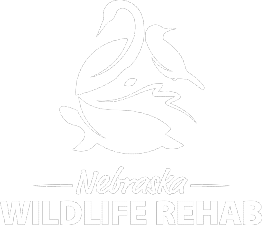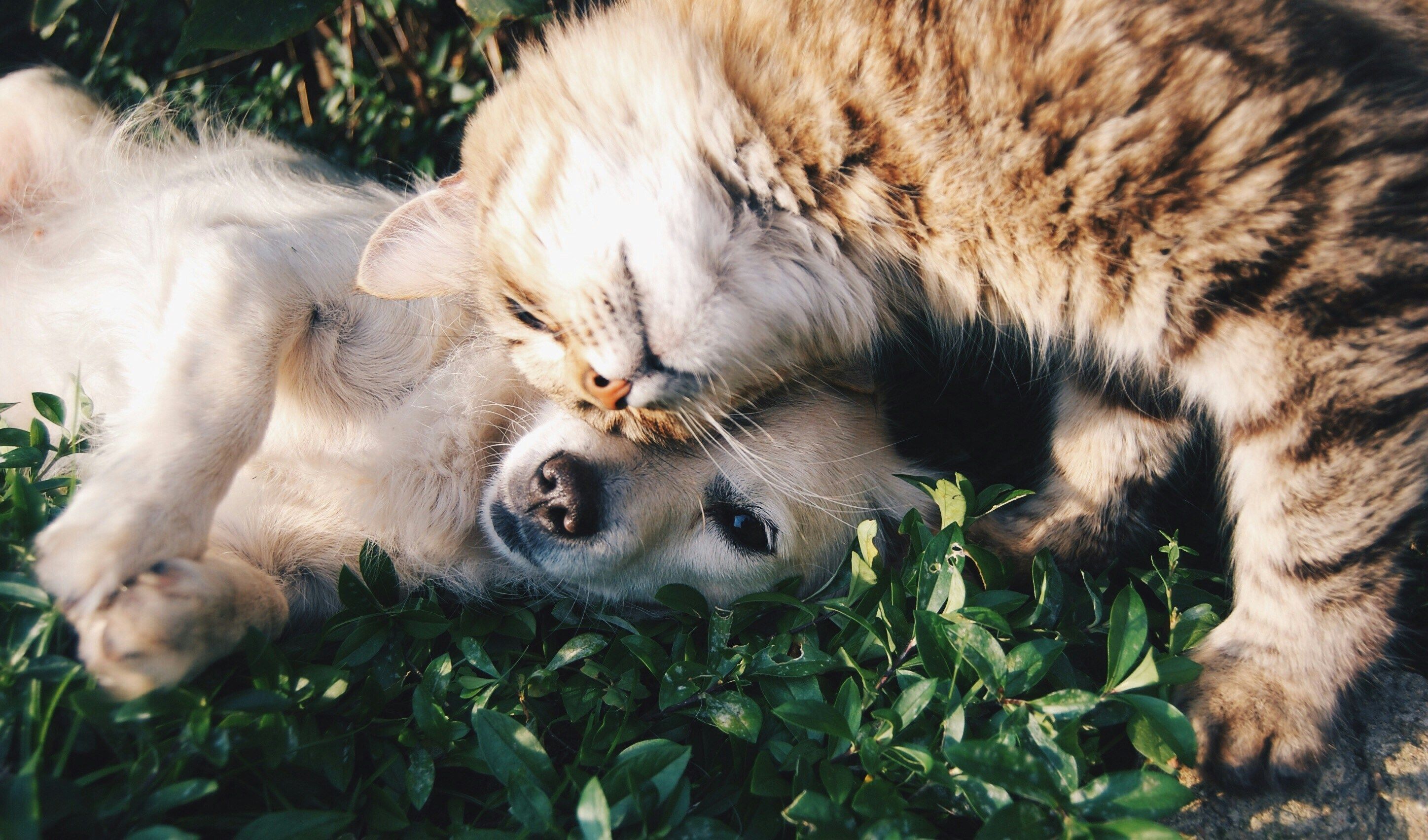We receive many calls each year from concerned pet owners, wondering if a pet's interaction with wildlife might be a danger to their dog or cat. Here are a few helpful tips to ensure that both your pets and wildlife stay safe.
Tips for Pet Owners
-
Vaccinate Your Pets
Wildlife can carry diseases that are dangerous to our pets. For this reason, we always recommend that you visit your veterinarian for annual vaccinations for all of your pets, and that you follow your veterinarian's recommendation for which vaccinations to give. It is also important to keep your pets on regular flea and tick preventatives, as well as heartworm preventative.
-
Bring Pet Food Inside at Night
If you must feed your pets outside, put food outside only during the day time hours. Most of the wildlife that likes to eat dog and cat food is nocturnal, so bringing all pet food in at night ensures that you do not attract wildlife that would like to eat it - such as raccoons, skunks, and opossums - to your yard.
-
Always Monitor Your Pets
Keeping an eye on your pets when they are outside is the best way to ensure they do not have an unwanted encounter with wildlife. Maybe more importantly though, it also helps you keep them safe from other dangers, such as cars, thieves, and domestic dogs and cats roaming the neighborhood.
-
Don't Let Your Pets Chase or Harass Wildlife
For the safety of wildlife and of your pets, it is important to keep them from interacting. Don't let your pets chase or harass wildlife. Aggressive behavior from a dog will certainly provoke an attack from a wild animal, which has no choice but to defend itself. (Most wild animals will run away, rather than confront danger, but if cornered will fight back to save their own lives.) Good training boundaries for your dog ensures that he doesn't hurt wildlife, doesn't get hurt himself, and ensures you have a dog that is responsive to your commands.
-
Keep Your Cats Indoors
The safest place for your cats is indoors -- all the time, and throughout their whole lives. Cats who live indoors are kept safe from disease, cars, roaming dogs, wildlife encounters, getting stranded in structures, and many other dangers. Cats who live indoors live longer, healthier lives. In addition, outdoor cats are devastating to wildlife and the environment. Studies suggest that outdoor cats kill at least 4 BILLION birds and small mammals in the U.S. each year and have been responsible for the extinction of at least 33 bird species worldwide. Please keep your cats and our wildlife safe by keeping them indoors.
Skunk Odor Remedy for Dogs
Tomato juice is messy and not as effective as commercial de-skunking products, or this handy at-home recipe. Follow these steps to de-skunk your dog:
Step 1: Keep your dog outside so he/she doesn't transfer the smell indoors. If your dog's eyes have been sprayed and are irritated, flush them with copious amounts of cool water.
Step 2: Mix together:
1 quart of hydrogen peroxide
1/4 cup baking soda
1 teaspoon liquid dishwashing soap
Wearing rubber gloves, wash your dog with this solution immediately after he/she has been sprayed. Take care to avoid your dog’s eyes. (If you don't have peroxide, baking soda, and liquid soap on hand, use vinegar diluted with water.)
Do NOT store this mixture or make it ahead of time, as the mixture could explode if left in a bottle.
Step 3: Clean and rinse
Rub the mixture through his/her fur, but don't leave it on too long or you could bleach your dog’s fur. Rinse thoroughly.
Step 4: Shampoo
Next, wash your dog with pet shampoo and rinse thoroughly. Towel-dry your dog and keep him/her in a warm spot until dry.
If your dog rubbed some of the stink onto you, you can rid your clothes of the smell by using regular laundry detergent mixed with a half-cup of baking soda.

